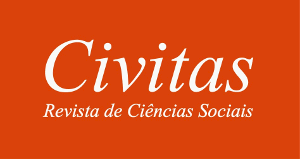|
H1 – Perfil dos réus |
H1A – Partido político dos réus |
MDB, PP, DEM, PSB, PSDB, PTB, PDT, PT e Outros partidos |
Variável dummy para cada partido político |
|
H1B – Ideologia do partido político dos réus |
Esquerda, Centro e Direita |
Variável dummy para cada ideologia |
|
H1C – Ocupação anterior dos réus |
Alta, média e baixa disposição para a atividade política |
Variável dummy para cada nível de disposição para a atividade política |
|
H2 – Características dos municípios |
H2A – População do município |
Micro, pequeno, médio e grande porte |
Variável dummy para cada tipo de população |
|
H2B – Tempo de existência do município |
Tempo de existência |
Variável contínua; em anos, contado até a data de distribuição da ação |
|
H2C – Localização do município |
Centro ocidental, centro oriental, metropolitana, nordeste, noroeste, sudeste e sudoeste |
Variável dummy para cada uma das messoregiões do Estado do Rio Grande do Sul |
|
H2D – Nível de riqueza do município |
PIB per capita linearizado |
Variável contínua; PIB per capita do município em 2010, linearizado |
|
H2E – Nível de desenvolvimento humano |
IDHM |
Variável contínua; IDHM do Município em 2010 |
|
H2F – Nível de desigualdade de renda |
Índice de Gini |
Variável contínua; Gini do município em 2010 |
|
H2G – Recebimento de receitas de royalties
|
Royalties |
Variável dummy, se município recebe ou não royalties
|
|
H3 – Características do funcionamento do sistema de justiça criminal |
H3A – Tipo de crime |
Corrupção, InfoMP, Ambiental e Outros |
Variável dummy para cada tipos de crimes denunciados |
|
H3B – Número de réus |
Número de réus |
Variável contínua; número de réus, incluindo o prefeito |
|
H3C – Origem do desembargador relator |
Judiciário, MP e OAB |
Variável dummy para cada tipo de origem do desembargador relator |
|
H3D – Tempo de tramitação do processo |
Tempo de tramitação |
Variável contínua; número de meses transcorridos entre a data de distribuição da ação e seu julgamento |
|
H3E – O número de volumes do processo |
Volumes |
Variável contínua; número de volumes do processo conforme cadastro do sistema do TJRS |
|
H3F – Relatório de auditoria do TCERS |
Auditoria do TCERS |
Variável dummy; referência ou não a auditoria do TCERS no relatório e voto |
